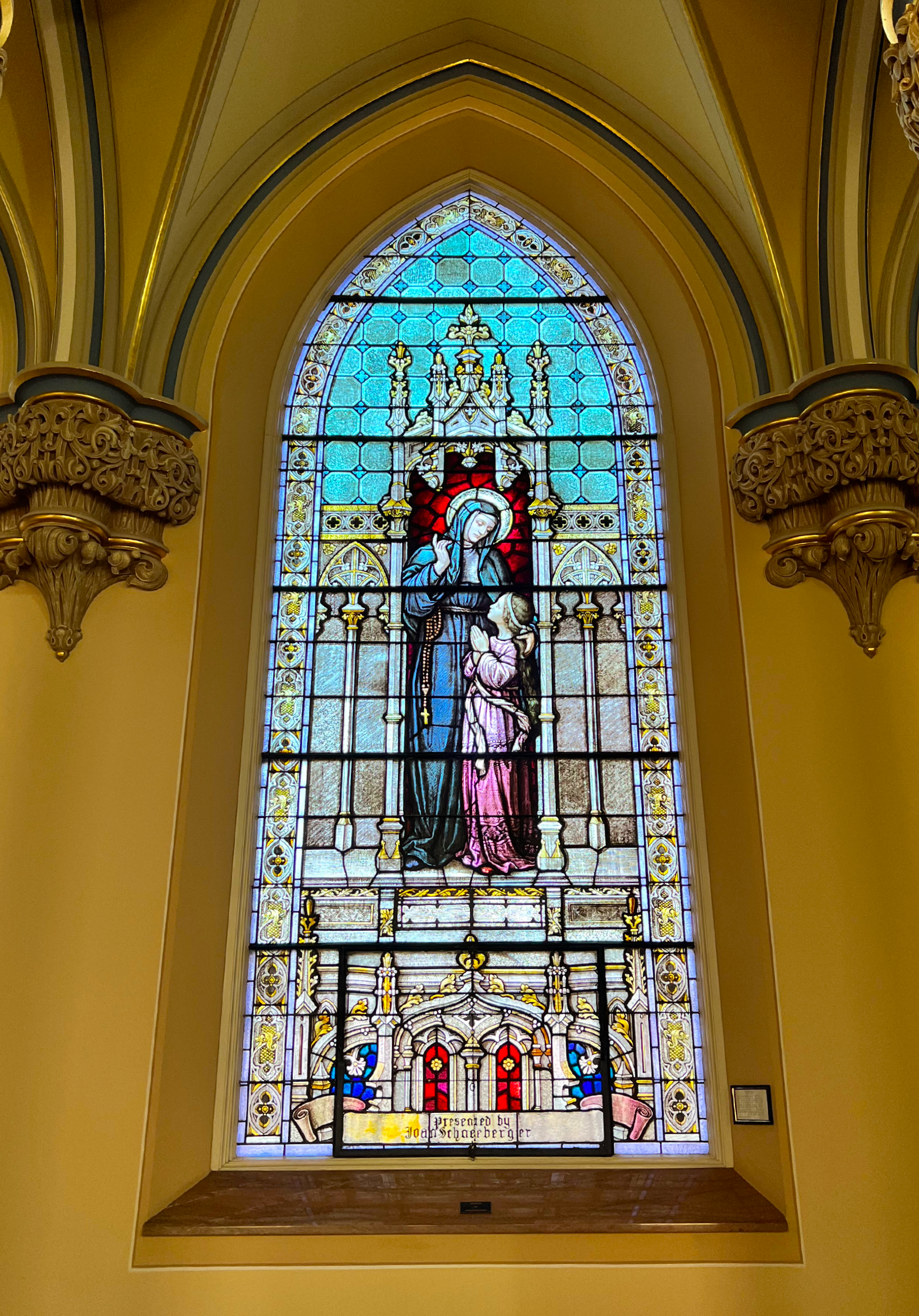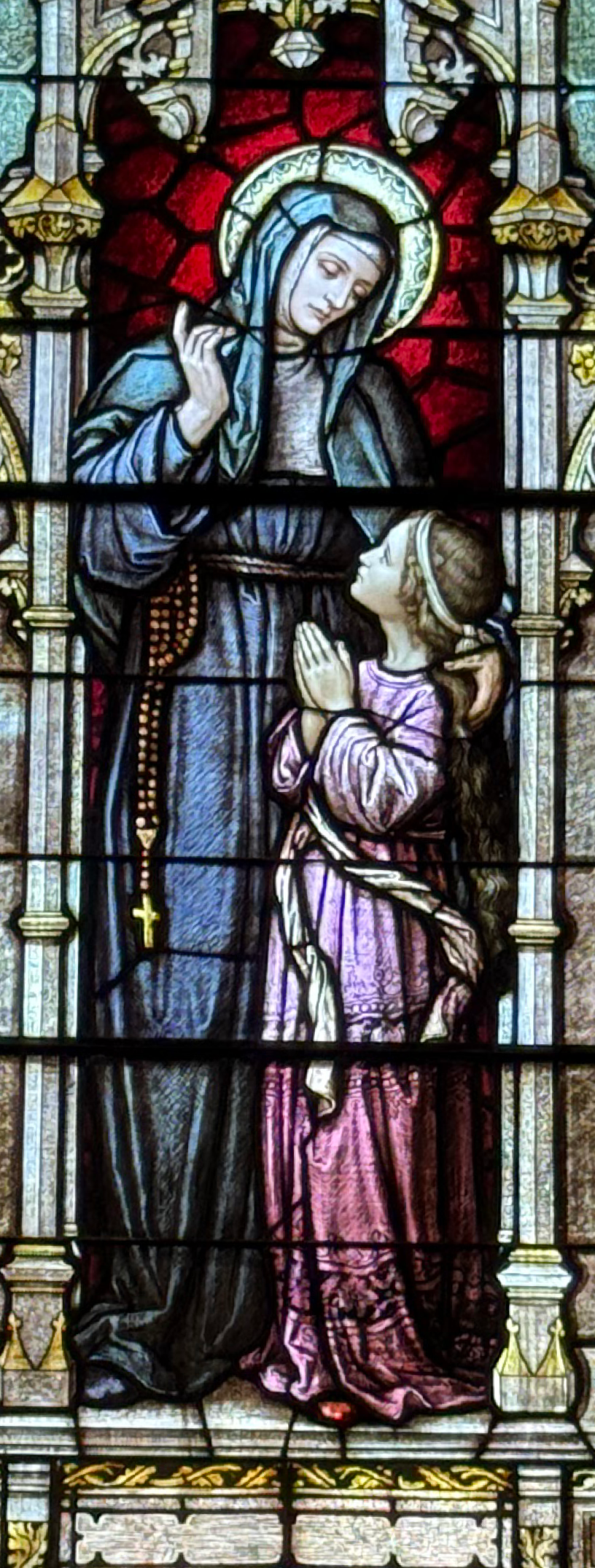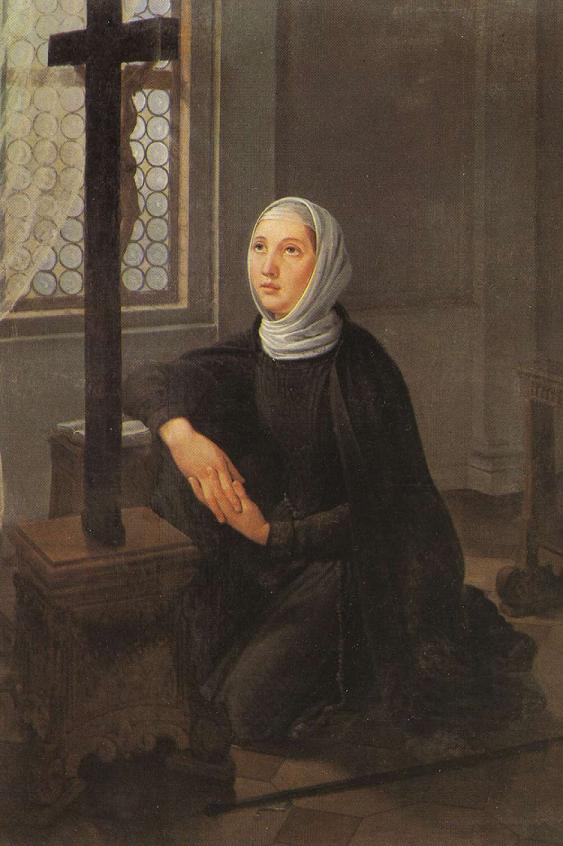
Her particular concerns were the education of young girls and the care of sick members of her sex. At 50 she set out on a pilgrimage to Palestine. On the way she contracted a case of what appeared to be psychogenic blindness. She gallantly continued the pilgrimage and on the way back recovered her sight. Five years before her death she founded the Ursuline Order for the education of young women, particularly those less privileged classes.

Presented by Joan Schneeberger


